Filter by
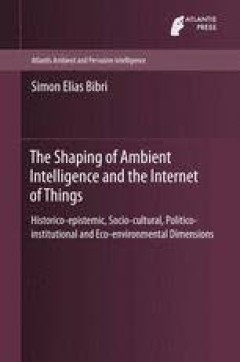
The Shaping of Ambient Intelligence and the Internet of Things Historico-epi…
Recent advances in ICT have given rise to new socially disruptive technologies: AmI and the IoT, marking a major technological change which may lead to a drastic transformation of the technological ecosystem in all its complexity, as well as to a major alteration in technology use and thus daily living. Yet no work has systematically explored AmI and the IoT as advances in science and technolog…
- Edition
- -
- ISBN/ISSN
- 978-94-6239-142-0
- Collation
- -
- Series Title
- -
- Call Number
- -
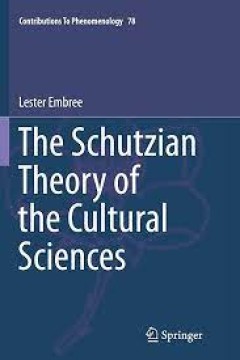
The Schutzian Theory of the Cultural Sciences
This work is devoted to developing as well as expounding the theory of the cultural sciences of the philosopher Alfred Schutz (1899-1959). Drawing on all of Schutz’s seven volumes in English, the book shows how his philosophical theory consists of the reflective clarifications of the disciplinary definitions, basic concepts, and distinctive methods of particular cultural sciences as well as t…
- Edition
- -
- ISBN/ISSN
- 978-3-319-13653-0
- Collation
- -
- Series Title
- -
- Call Number
- -
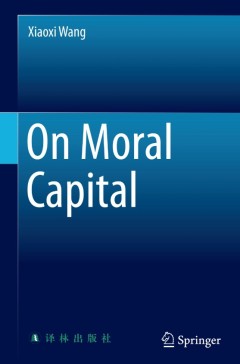
On Moral Capital
This book promotes the original concept of “Moral Capital” as the key to analyzing the nature and function of morality in economic activities. The book is divided into three major sections. In the first, the author argues that the logical connections between morality and economy and those between morality and profit provide a concrete theoretical basis for the concept of moral capital. In t…
- Edition
- 1
- ISBN/ISSN
- 978-3-662-45543-2
- Collation
- XI, 266
- Series Title
- -
- Call Number
- -
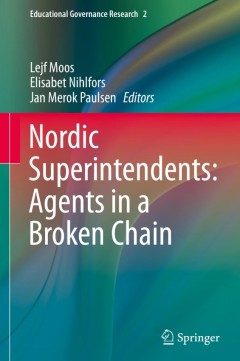
Nordic Superintendents: Agents in a Broken Chain
This book analyses the superintendent position and relations and shows how the well-known policy umbrella, the New Public Management (NPM), is being adapted to national contexts. School superintendents are civil servants at the heart of the governance of municipal education. Educational governance in the Nordic countries - Denmark, Finland, Norway and Sweden - is currently undergoing comprehens…
- Edition
- 1
- ISBN/ISSN
- 978-3-319-25104-2
- Collation
- XX, 334
- Series Title
- Educational Governance Research
- Call Number
- -

The International Handbook of the Demography of Race and Ethnicity
Examining key countries in every region of world, this handbook presents population profiles and analyses concerning racial/ethnic disparities and changing intergroup relations. Inside, prominent scholars from various parts of the world and disciplines address the links between stratification, demography, and conflict across the globe. Organized by region/continent, coverage for each profile…
- Edition
- 1
- ISBN/ISSN
- 978-90-481-8891-8
- Collation
- XXVI, 629, 97 b/w illustrations
- Series Title
- International Handbooks of Population
- Call Number
- -
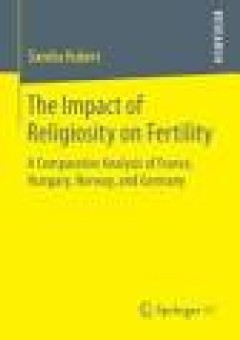
The Impact of Religiosity on Fertility
The work investigates the impact of religiosity of women and men on their completed fertility in an international comparison considering a long time period. Sandra Hubert aims at uncovering all mechanisms through which religiosity and religious institutions can affect fertility. Hence, both the micro- and the macro-level of each country are explicitly integrated, and theoretically as well as…
- Edition
- 1
- ISBN/ISSN
- 978-3-658-07008-3
- Collation
- XIV, 283, 13 b/w illustrations
- Series Title
- The Impact of Religiosity on Fertility
- Call Number
- -
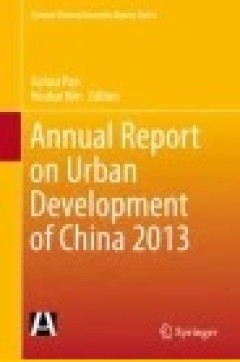
Annual Report on Urban Development of China 2013
This book focuses on China’s urban development. In China, the process of allowing more rural migrants to become registered city residents in urban areas remains stagnant despite its importance to the Chinese government and the existence of a national consensus about it. Cities can compulsorily purchase land from farmers at low or even no costs, and most farmers, whose families have relied on …
- Edition
- Ed. 1
- ISBN/ISSN
- 978-3-662-46324-6
- Collation
- XIII, 288
- Series Title
- Current Chinese Economic Report Series
- Call Number
- 330 ANN a
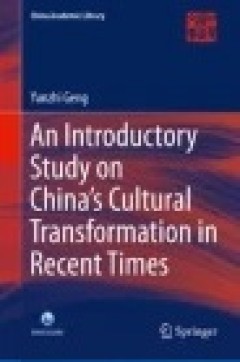
An Introductory Study on China's Cultural Transformation in Recent Times
This book examines in detail the basic trajectory of the cultural transformation and brings to light the extrinsic conditions and intrinsic mechanisms involved. It focuses on the period from after the Opium Wars to the New Culture Movement, as the New Culture Movement can be considered a pivotal phase in the cultural transformation of modern-day China. The New Culture Movement was a revolutiona…
- Edition
- Ed. 1
- ISBN/ISSN
- 978-3-662-44590-7
- Collation
- X, 442
- Series Title
- China Academic Library
- Call Number
- 301 GEN i
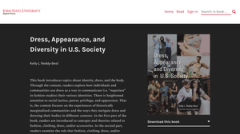
Dress, Appearance, and Diversity in U.S. Society
This is a free textbook geared towards college-level courses about dress and identity. The purpose of the book is to help students learn about dress, identity, and how these topics intersect with marginalized communities. Everyone interacts with different people in their day-to-day lives. Having a greater understanding of others can lead to a more equitable, just society. This textbook was crea…
- Edition
- -
- ISBN/ISSN
- -
- Collation
- -
- Series Title
- -
- Call Number
- 391.472 RED d
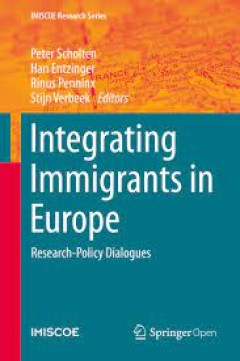
Integrating Immigrants in Europe Research-Policy Dialogues
This open access book explores how research and policymaking in the field of migrant integration have developed historically and how this interrelationship plays out in the strongly politicised climate of opinions on migration in Europe. It features interdisciplinary theoretical contributions as well as original empirical studies on research-policy dialogues at both the EU and country level. …
- Edition
- -
- ISBN/ISSN
- 978-3-319-16256-0
- Collation
- -
- Series Title
- -
- Call Number
- -
 Computer Science, Information & General Works
Computer Science, Information & General Works  Philosophy & Psychology
Philosophy & Psychology  Religion
Religion  Social Sciences
Social Sciences  Language
Language  Pure Science
Pure Science  Applied Sciences
Applied Sciences  Art & Recreation
Art & Recreation  Literature
Literature  History & Geography
History & Geography